Building the perfect website experience for your customers isn’t easy.
Today’s top chemical brands are going above and beyond by personalizing the website experience for each and every visitor, or at least for every visitor they are able to identify.
To create a website experience that persuades your visitors to act, you need to go beyond following the same playbook everyone else is using. You need the right tools and a clear strategy.
When executed effectively, personalization has the potential to enhance customer engagement, drive higher conversion rates, and foster increased customer loyalty.
By utilizing data that you already have on your customers, you can deliver content and features that are specific to their needs and interests.
In this blog post, we'll share examples of personalization and explain what tools and technologies you might want to consider when building your personalization strategy. By implementing even just one of these examples, you'll be able to set your business apart from the competition and build stronger relationships with your customers.
This blog post will discuss the following:
What is website personalization?
Website personalization is the process of customizing elements on your website based on visitor firmographics to create a customer journey that responds to the unique needs and interests of each visitor. It’s about understanding that a one size fits all approach just will not cut it in 2024. It’s about understanding that no two website visitors are alike, and you need to be creating messages that speak to users based on what makes them different.
Website personalization provides visitors with a customized experience by changing things like messaging, graphics, CTAs, social proof, chat, or other types of content on the website.
These experiences can be personalized for different segments such as industry. Or you can take it even further by creating 1:1 personalized experience for visitors for target accounts under an Account Based Marketing (ABM) plan.
Here’s some notable research that shows the importance of personalized customer experiences:
- 66% of customers want brands to understand their unique needs and expectations.
- 52% want all offers that come from a brand to be personalized.
- 53% of brands are investing in omnichannel strategies.
5 Website Personalization Examples for B2B Chemical Companies
1. Personalization by Market Segment
Personalization by market segment is the most popular type of website personalization we have seen chemical companies implementing. This effort empowers chemical brands to address the unique needs and preferences of different customer groups. In this approach, a company tailors its website content, product recommendations, and messaging to resonate specifically with a particular market profile.
An example of this, a chemical company can craft distinct web experiences for customers in the pharmaceutical sector, the agriculture industry, or the manufacturing field. By doing so, they ensure that their website speaks directly to the challenges, demands, and aspirations of each segment, effectively engaging and guiding these diverse customer groups through a personalized digital journey.
At HEXNET, we practice what we preach. You might have noticed that our website speaks to the chemical industry when entering through this blog post, or a similar “chemical experience”. If you were to load HEXNET.com in a different browser, or an incognito window, you would see HEXNET works with a few other market segments as well. Just to be clear though, HEXNET primarily works with chemical companies, it’s our preferred industry 😊
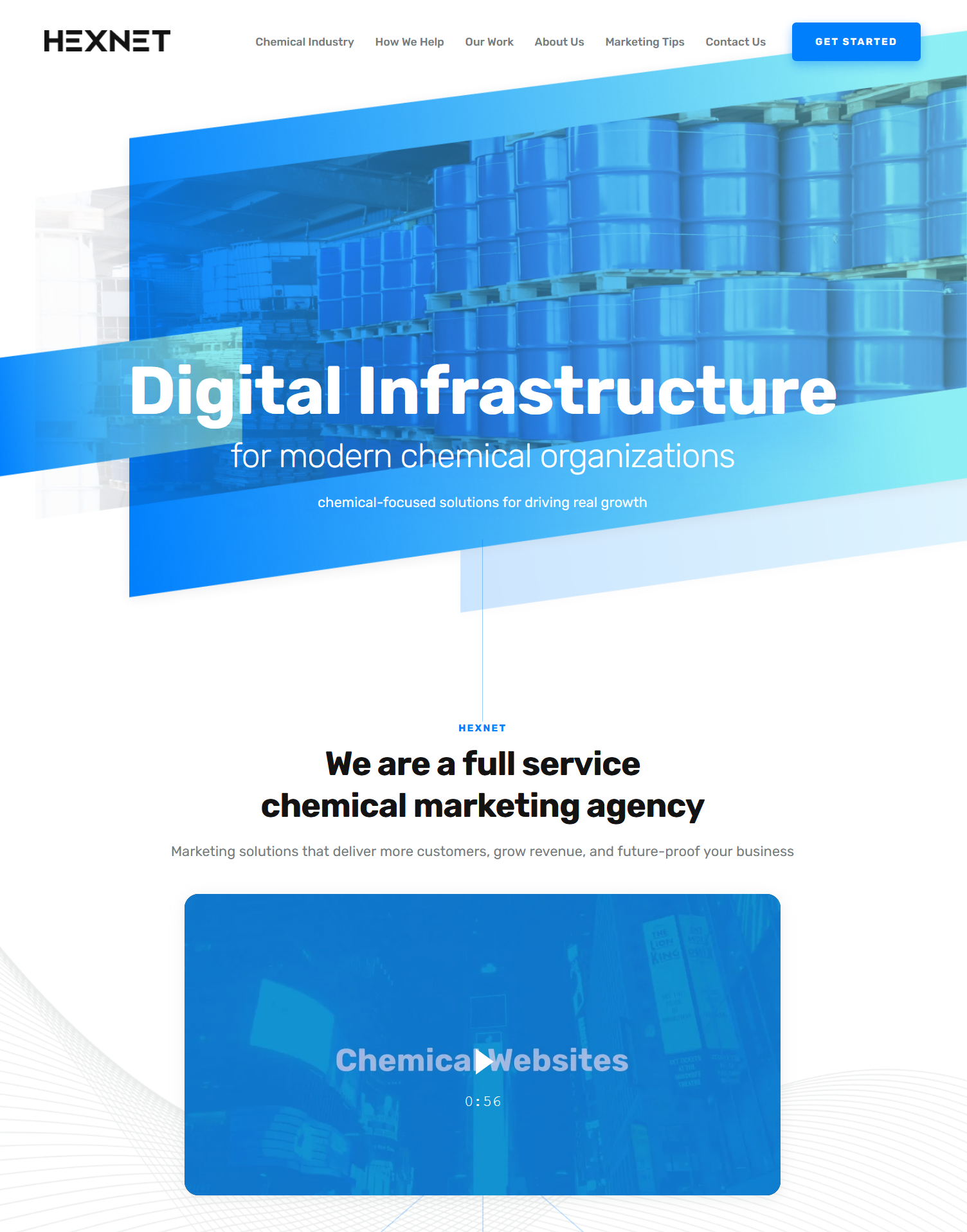
2. Use a Data Enrichment Platform
A data enrichment platform is a 3rd party technology that allows sales and marketing teams to better target and personalize their outreach. Data enrichment can significantly improve the customer experience.
Today’s top chemical brands are improving the prospect and customer experience by de-anonymizing website traffic (identifying visitors that have never filled a form, created an account, signed in, etc.) with the help of a data enrichment technology*. In doing this, brands can identify target audiences to deliver customized experiences in real time.
Using a data enrichment API will allow your website developer(s) to build even better real time, personalized experiences for your visitors. One example of this a the “Custom Mining Experience” HEXNET recently built for Rajant.com. While Rajant sells into many markets, when the website is able to identify a visitor by SIC code, or from a list of target ABM account domains, the user will automatically be redirected into a custom mining experience. We do this by checking the IP address of every website visitor against a data enrichment partner, and if the IP can be associated to a COMPANY, we then send back the SIC code of that company. SIC codes matching the mining industry are redirected to a custom experience.
Default Experience - the default website navigation shows “MARKETS” as the 3rd menu:
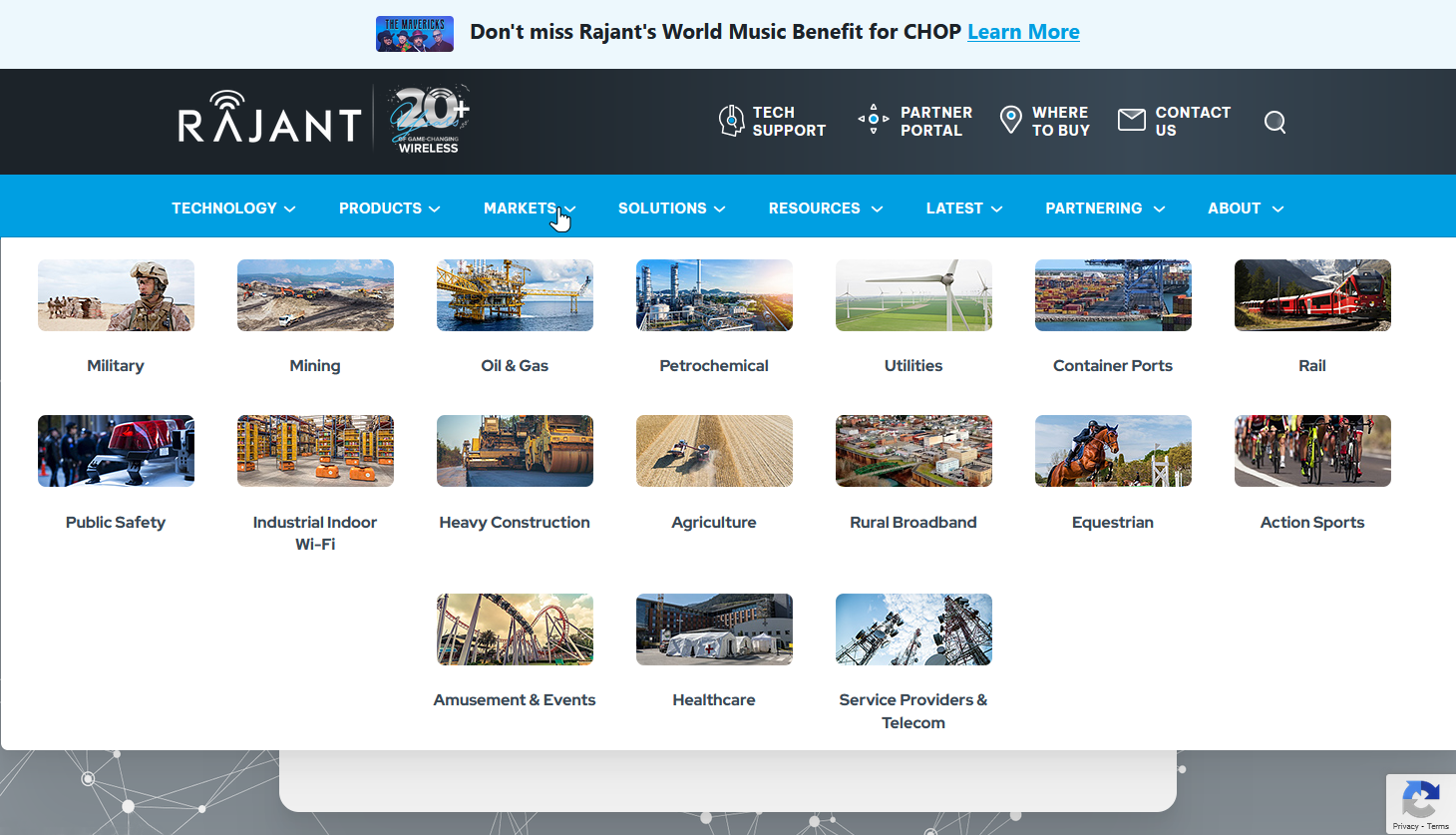
Once the website de-anonymizes and identifies a visitor matching “mining”, they are redirected into the custom mining experience.
Notice the custom “Rajant for Mining” logo and custom message focus. Notice how “OTHER MARKETS” is now the last menu option in the custom navigation bar:
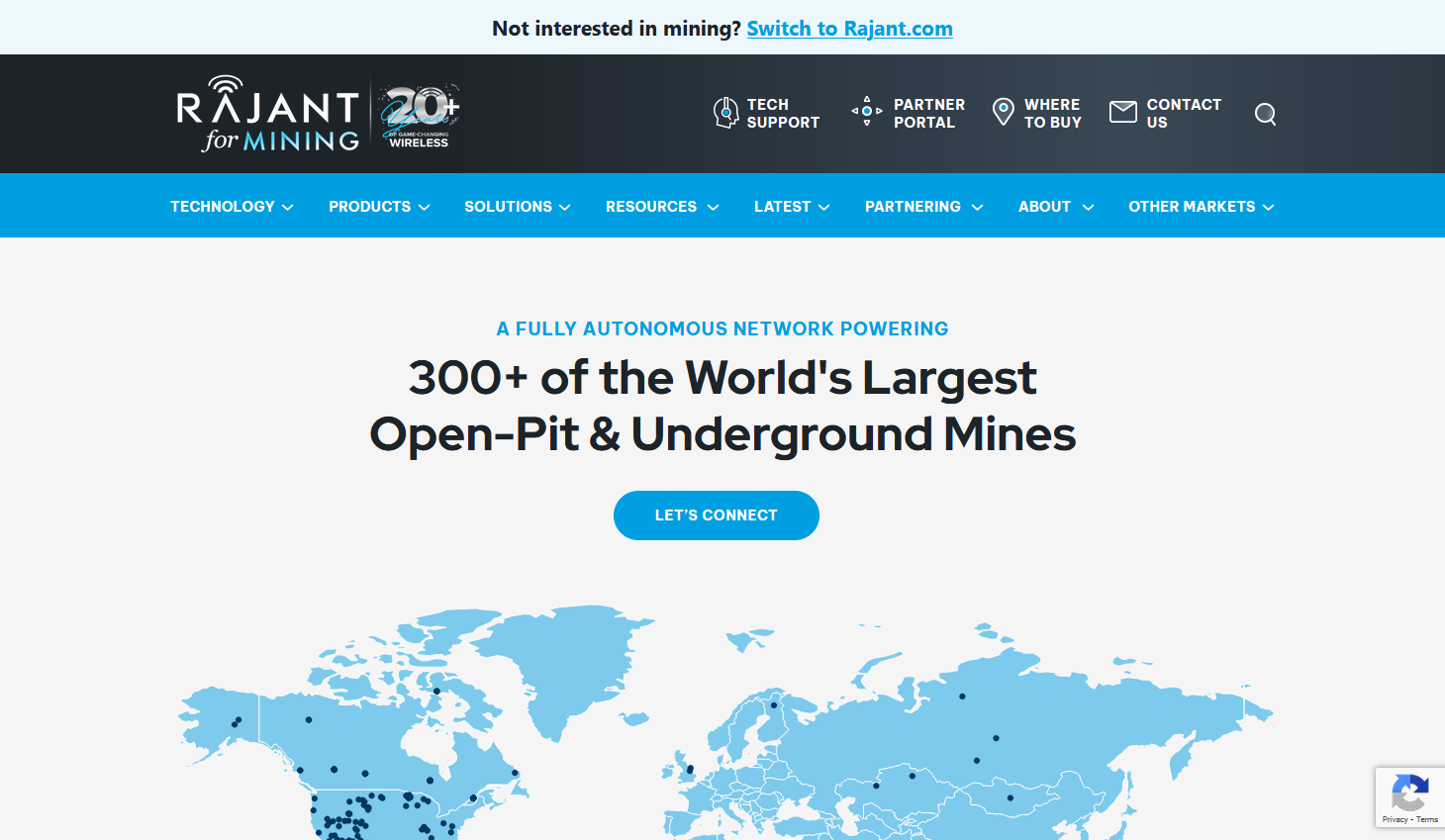
Beyond enabling personalization functionality, integrating a data enrichment technology partner is worth the effort for the simple fact that it also helps alert sales teams when high-value accounts are on the website. When a high-value account is on the website, a SMS or email can be sent to sales team with a link to view the activity of this prospect, what products they looked at, what search queries they entered, and more. This helps to understand how different audiences engage with the site as well, all while supporting automated ABM campaigns.
* It’s important to note, that as of today's date, 3rd party data enrichment platforms are only able to successfully de-anonymize approximately 15-30% of a website’s anonymous visitors.
3. Navigation/Menu Personalization
Navigation personalization is a critical component of any successful B2B website. This feature enables companies to tailor their menus to the unique needs and preferences of their target audiences, helping them create a more engaging user experience that encourages visitors to explore and interact with the site.
Both examples above, hexnet.com and rajant.com, will customize the navigation when a personalized experience is in session.
4. Social Proof Personalization
Social proofs on your website add instant credibility to the value you're promising. Companies are using different types of social proof across their website.
Although there are plenty of different types, here are three main social proof categories commonly used by companies:
- customer testimonials
- product reviews
- customer logos
As the competition for customer attention intensifies, chemical brands are actively seeking new ways to distinguish themselves. One strategy businesses are employing to accomplish this is by personalizing social proofs on their websites.
You can personalize the examples of social proofs for each target audience by using relevant logos and testimonials to match their interests.
For example, visitors from the cosmetics industry can see company logos and testimonials from related cosmetic companies, while visitors from other industries see social proofs related to their industry.
Here is an example of social proof personalization on hexnet.com, based on chem:

5. Personalize Based on Your Own Registered Accounts
Unlock the full potential of website personalization by catering directly to your own accounts, those who have taken the extra step of registering an account on your website. By recognizing these dedicated individuals, you can provide them with a truly tailored experience.
- Customized Search Results: For registered users, offer search results that prioritize their previous searches, favorited lists, and inquiry history. This not only saves them time but also encourages repeated engagement and inquiries.
- Product Recommendations: Your registered customers deserve exclusive treatment. Use their inquiry history and browsing patterns to recommend products or services specifically suited to their preferences. Offering tailored suggestions enhances their website experience and increases the likelihood of additional inquiries.
- Personalized Content: Tailor the content they see on the homepage or landing pages. For instance, display news, articles, or promotions related to their industry or market segments, creating a deeper connection with your brand.
Personalizing the experience for your registered users shows your appreciation for their loyalty and offers a strong incentive for continued engagement, loyalty, and advocacy.
By implementing this level of personalization, your chemical company can demonstrate its commitment to individualized customer experiences, fostering brand loyalty and long-lasting customer relationships.
Here is an example of GJ Chemical welcoming returning visitors with a message that engages with them on a personal level. Notice that the goal of this message is to get users to sign into their account, which helps GJChemical.com collect even more data to provide personalized offers and experiences.
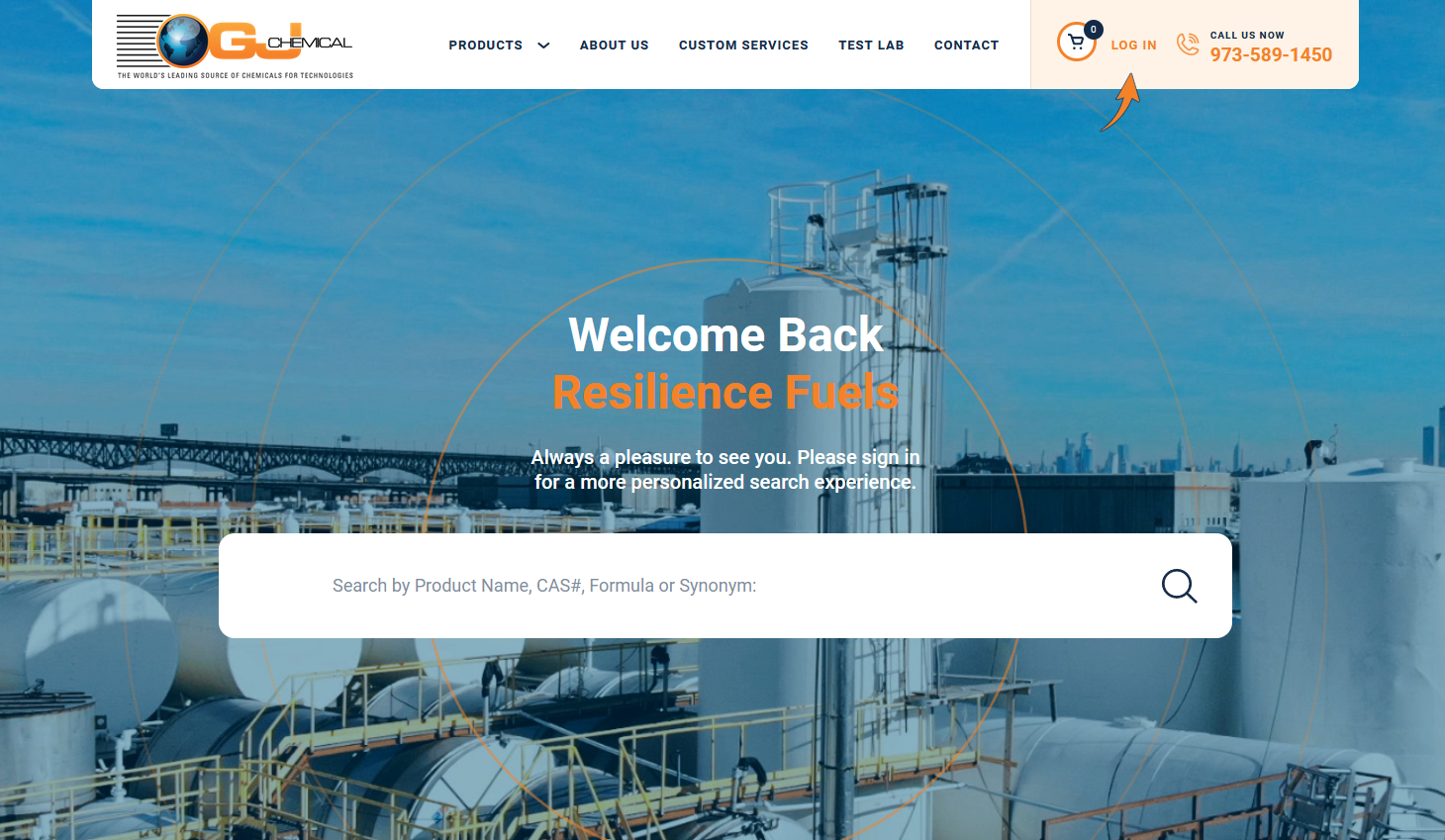
Wrapping Up
The five examples we’ve shown above do not even scratch the surface of what is possible when it comes to website personalization. There are so many ways chemical marketers can implement personalized web experiences.
By following these steps you'll be well on your way to implementing an effective website personalization strategy. Keep in mind that personalization is an ongoing process that requires dedication and adaptability to meet the evolving needs of your audience and your chemical business.
We highly recommend getting started by choosing a technology and data enrichment partner. You should begin collecting visitor data asap.
If you need help personalizing your website, HEXNET offers a CMS built specifically for helping chemical companies manage their website, product line cards, SDS, TDS, COA and more. And we've partnered with Clearbit for data enrichment. HEXNET customers can take advantage of Clearbit's ability to de-anonymize website visitors before they fill out a form.
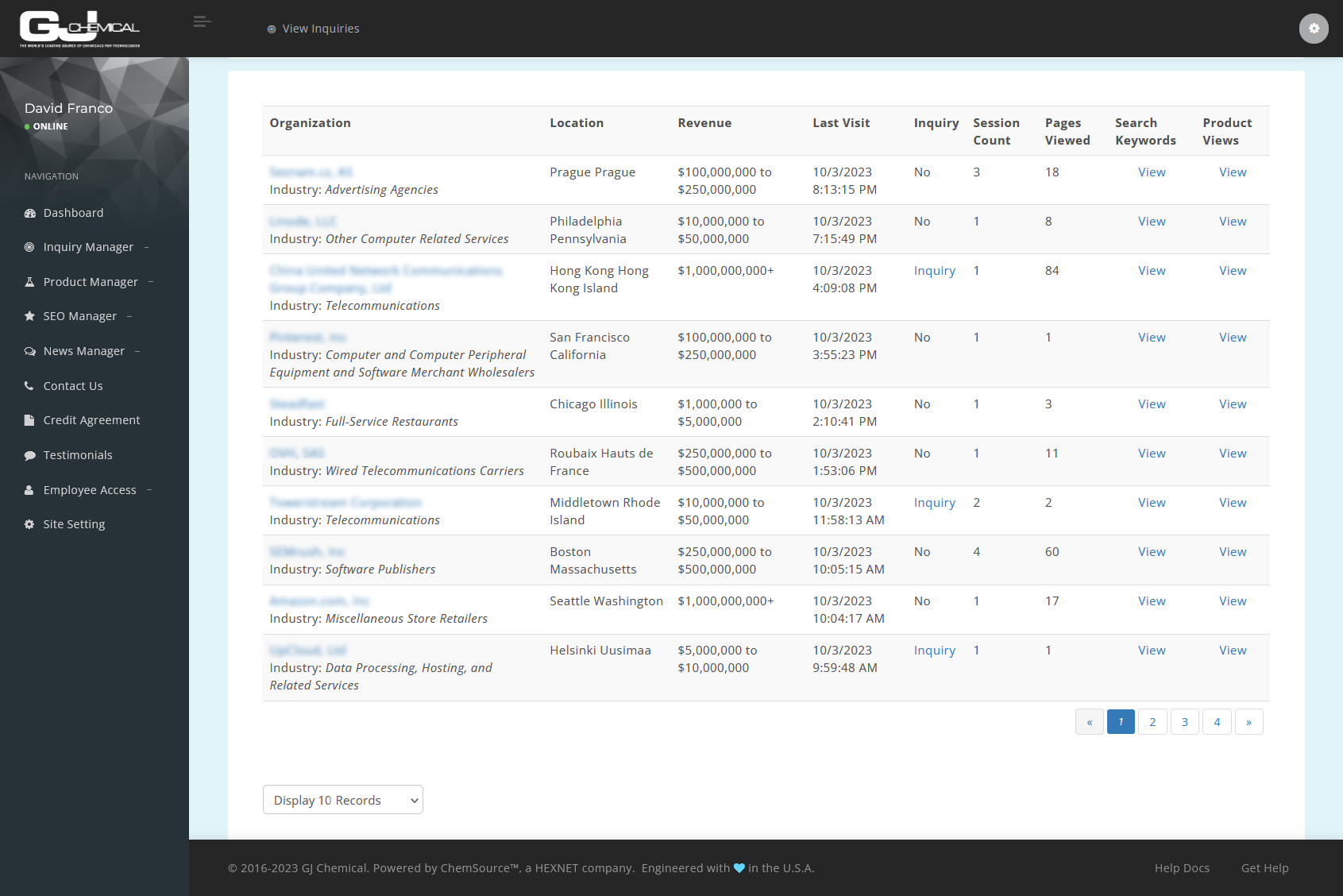
Schedule a Strategy Session or Demo
If during your personalization journey you find yourself wanting some help, schedule a strategy session. We’d be happy to audit your website and provide our recommendations and explain how we can help.
Your strategy session is just a click away!
